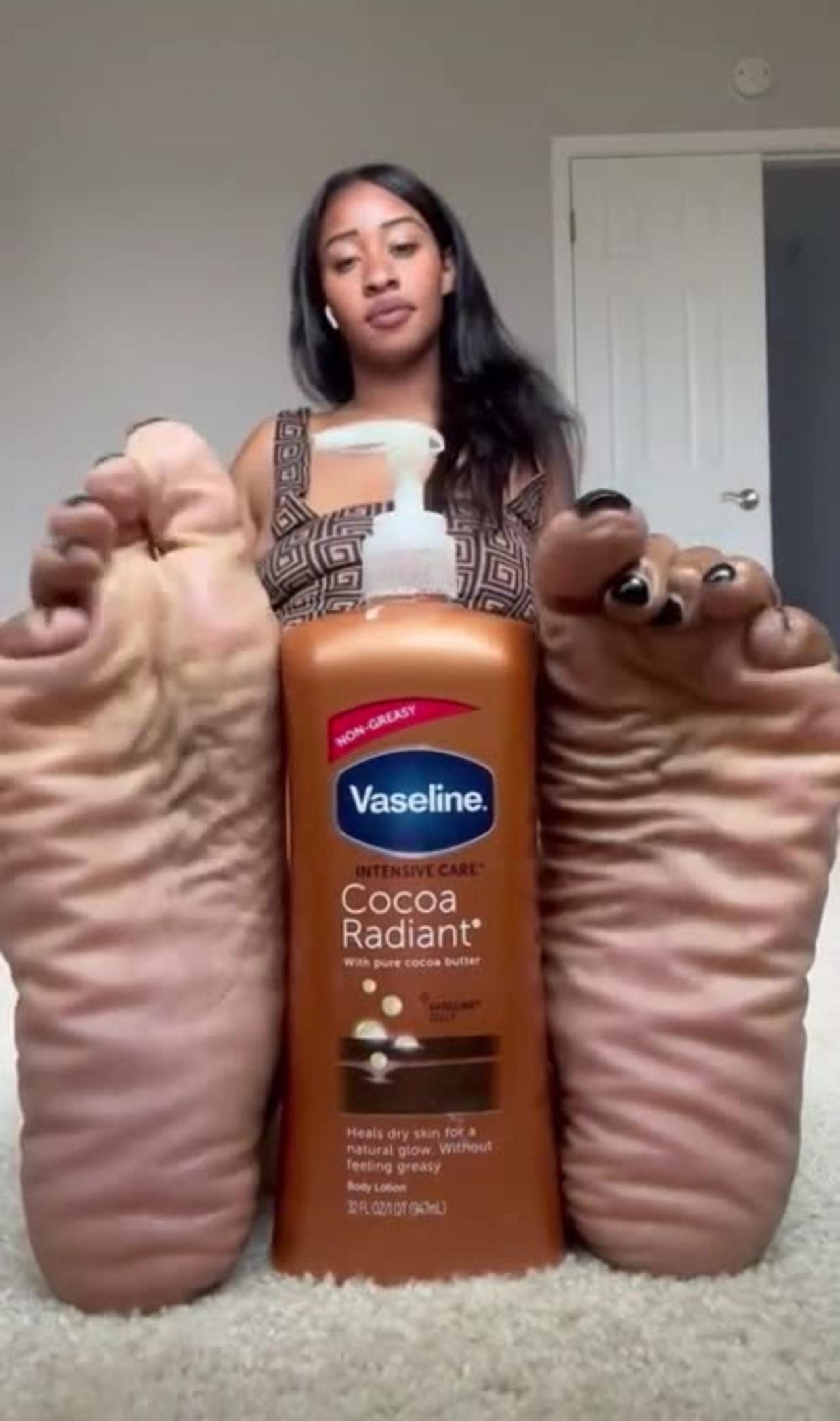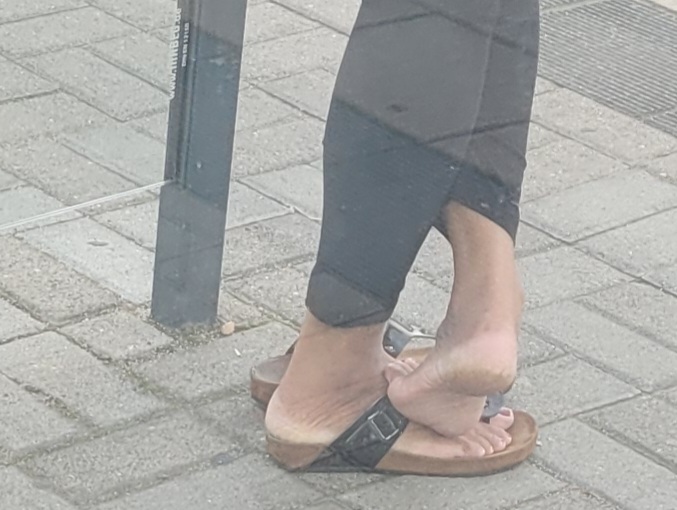Smelly ebony soles can be an embarrassing and uncomfortable issue that many people face. Whether it's due to excessive sweating, poor foot hygiene, or wearing the wrong footwear, the problem can significantly impact your confidence and daily life. In this comprehensive guide, we will explore the causes, solutions, and preventive measures to help you combat smelly ebony soles effectively.
Foot odor is a common concern that affects individuals of all ages and backgrounds. It often stems from bacteria and fungi that thrive in warm, moist environments, such as inside shoes. Understanding the root causes and learning how to address them is essential for maintaining fresh and healthy feet.
By following the tips and strategies outlined in this article, you'll gain valuable insights into how to manage and prevent smelly ebony soles. Let's dive in and discover the solutions to keep your feet feeling fresh and confident.
Read also:Unveiling The Future Of Costume Rappers A Fashion Revolution In Music
Table of Contents
- Biography and Background
- Causes of Smelly Ebony Soles
- Effective Solutions for Smelly Feet
- Preventive Measures
- Choosing the Right Footwear
- Foot Hygiene Practices
- Natural Remedies for Foot Odor
- Medical Options for Persistent Smelly Feet
- Common Myths About Foot Odor
- Conclusion and Call to Action
Biography and Background
While "smelly ebony soles" may not refer to a specific person, the term highlights a common issue faced by individuals with darker skin tones. People with darker skin may experience unique challenges when it comes to foot odor due to factors such as sweat production, shoe materials, and skin sensitivity. Understanding the biological and environmental factors contributing to this issue is crucial for addressing it effectively.
Data and Biodata
| Factor | Details |
|---|---|
| Skin Type | Darker skin tones |
| Common Issue | Foot odor due to sweat and bacteria |
| Prevalence | Affects 10-15% of the global population |
| Key Causes | Poor hygiene, synthetic shoes, and excessive sweating |
Causes of Smelly Ebony Soles
Smelly ebony soles are primarily caused by bacteria and fungi that thrive in warm, moist environments. These microorganisms break down sweat and dead skin cells, producing unpleasant odors. Below are the main factors contributing to this issue:
Factors Contributing to Foot Odor
- Excessive sweating (hyperhidrosis)
- Wearing synthetic or non-breathable shoes
- Poor foot hygiene
- Underlying health conditions such as athlete's foot
A study published in the Journal of Dermatology found that individuals with hyperhidrosis are more prone to foot odor due to increased sweat production, which creates an ideal environment for bacteria to flourish.
Effective Solutions for Smelly Feet
Addressing smelly ebony soles requires a combination of hygiene practices, lifestyle changes, and targeted solutions. Here are some effective strategies:
Hygiene Practices
- Wash your feet daily with antibacterial soap
- Dry your feet thoroughly, especially between the toes
- Use foot powder or antiperspirant to control sweat
Lifestyle Changes
- Rotate your footwear to allow them to air out
- Wear moisture-wicking socks made from natural fibers
- Avoid wearing the same shoes two days in a row
Preventive Measures
Prevention is key to avoiding smelly ebony soles. By adopting good habits, you can minimize the risk of developing foot odor. Here are some preventive measures:
- Choose shoes with proper ventilation
- Use insoles designed to absorb moisture
- Regularly clean and disinfect your footwear
According to the American Podiatric Medical Association, wearing breathable shoes and practicing proper foot hygiene can significantly reduce the likelihood of foot odor.
Read also:How To Say I Love You In Dog Language Understanding Canine Communication
Choosing the Right Footwear
The type of footwear you choose plays a crucial role in preventing smelly ebony soles. Opt for shoes made from natural materials like leather or canvas, which allow your feet to breathe. Additionally, consider the following tips:
- Select shoes with good ventilation
- Avoid tight-fitting shoes that trap moisture
- Replace worn-out shoes that retain odors
Investing in high-quality, breathable footwear can make a noticeable difference in reducing foot odor.
Foot Hygiene Practices
Maintaining proper foot hygiene is essential for combating smelly ebony soles. Here are some hygiene tips to keep your feet fresh:
- Soak your feet in Epsom salt or apple cider vinegar to neutralize odors
- Trim your toenails regularly to prevent bacteria buildup
- Use a pumice stone to exfoliate dead skin and prevent calluses
Regular foot care not only prevents odor but also promotes overall foot health.
Natural Remedies for Foot Odor
Natural remedies can be an effective and affordable way to combat smelly ebony soles. Here are some tried-and-tested solutions:
- Tea tree oil: Known for its antibacterial properties, tea tree oil can help eliminate odor-causing bacteria.
- Baking soda: Sprinkle baking soda inside your shoes to absorb moisture and neutralize odors.
- Lemon juice: Apply diluted lemon juice to your feet to naturally deodorize and brighten your skin.
These remedies are safe and easy to incorporate into your daily routine.
Medical Options for Persistent Smelly Feet
If home remedies and hygiene practices fail to resolve the issue, it may be time to consult a healthcare professional. Persistent foot odor could indicate an underlying condition such as athlete's foot or hyperhidrosis. Medical treatments may include:
- Prescription antifungal medications
- Botulinum toxin injections for excessive sweating
- Iontophoresis, a procedure that reduces sweat production
Seeking professional advice ensures that you receive the appropriate treatment for your specific needs.
Common Myths About Foot Odor
There are several misconceptions surrounding foot odor. Let's debunk some of these myths:
- Myth 1: Only people with poor hygiene experience foot odor.
- Fact: Even individuals who practice good hygiene can develop foot odor due to factors like genetics and sweat production.
- Myth 2: Foot odor is untreatable.
- Fact: With the right combination of hygiene practices and treatments, foot odor can be effectively managed.
Understanding the truth about foot odor helps in addressing the issue more effectively.
Conclusion and Call to Action
In conclusion, smelly ebony soles can be managed and prevented with the right approach. By understanding the causes, adopting proper hygiene practices, and exploring natural and medical solutions, you can keep your feet feeling fresh and confident. Remember to choose breathable footwear, maintain good foot hygiene, and seek professional help if needed.
We invite you to share your thoughts and experiences in the comments below. Have you tried any of the remedies mentioned in this article? Let us know what worked for you. Additionally, feel free to explore other articles on our site for more tips on foot care and overall health.


